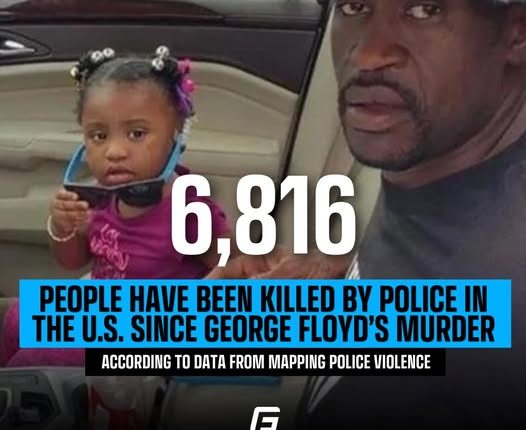George Floyd: Five Years After His Murder, a Nation Reflects on a Reckoning Without Reform

George Floyd: Five Years After His Murder, a Nation Reflects on a Reckoning Without Reform
On May 25, 2020, George Perry Floyd Jr., a 46-year-old Black man, was murdered by Minneapolis police officer Derek Chauvin, who knelt on Floyd’s neck for over nine minutes. The harrowing footage of Floyd’s death ignited global protests and a renewed call for racial justice and police reform. Five years later, the United States grapples with the legacy of that moment, facing questions about the progress made and the promises unfulfilled.(POLITICO)
A Global Outcry and Initial Commitments
In the immediate aftermath of Floyd’s death, millions worldwide took to the streets under the banner of the Black Lives Matter movement, demanding systemic change. Corporations pledged over $50 billion toward racial equity initiatives, and governments at various levels promised comprehensive police reforms. The U.S. House of Representatives passed the George Floyd Justice in Policing Act, aiming to address police misconduct and racial bias.(Wikipedia)
Stalled Reforms and Political Backlash
Despite initial momentum, many reform efforts have stalled. The George Floyd Justice in Policing Act failed to pass the Senate, and subsequent federal initiatives faced significant hurdles. Under the current administration, there has been a rollback of several diversity, equity, and inclusion (DEI) programs, and federal oversight of police departments has diminished. This regression has been met with concern from civil rights advocates who view these actions as a retreat from commitments made in 2020.(Houston Chronicle, Reuters)
Local Efforts and Mixed Outcomes
At the state and local levels, the picture is varied. Some jurisdictions have enacted reforms, such as banning chokeholds and implementing body-worn camera programs. However, the effectiveness and enforcement of these measures differ widely. In Minneapolis, where Floyd was killed, efforts to overhaul the police department have faced challenges, including leadership changes and community skepticism.(The Washington Post, apnews.com)
Community Reflections and Ongoing Struggles
Communities continue to honor Floyd’s memory through memorials and events, reflecting both on the tragedy of his death and the broader issues it symbolizes. Activists emphasize the need for sustained engagement and systemic change, pointing to persistent disparities in policing and criminal justice. While some progress has been made, many argue that the core issues that led to Floyd’s death remain unaddressed.
Conclusion
Five years after George Floyd’s murder, the United States stands at a crossroads. The initial wave of activism and promises for reform have given way to a complex reality where progress is uneven and challenges persist. As the nation reflects on this anniversary, the call for justice and systemic change continues, underscoring the enduring impact of Floyd’s life and death.
Related
